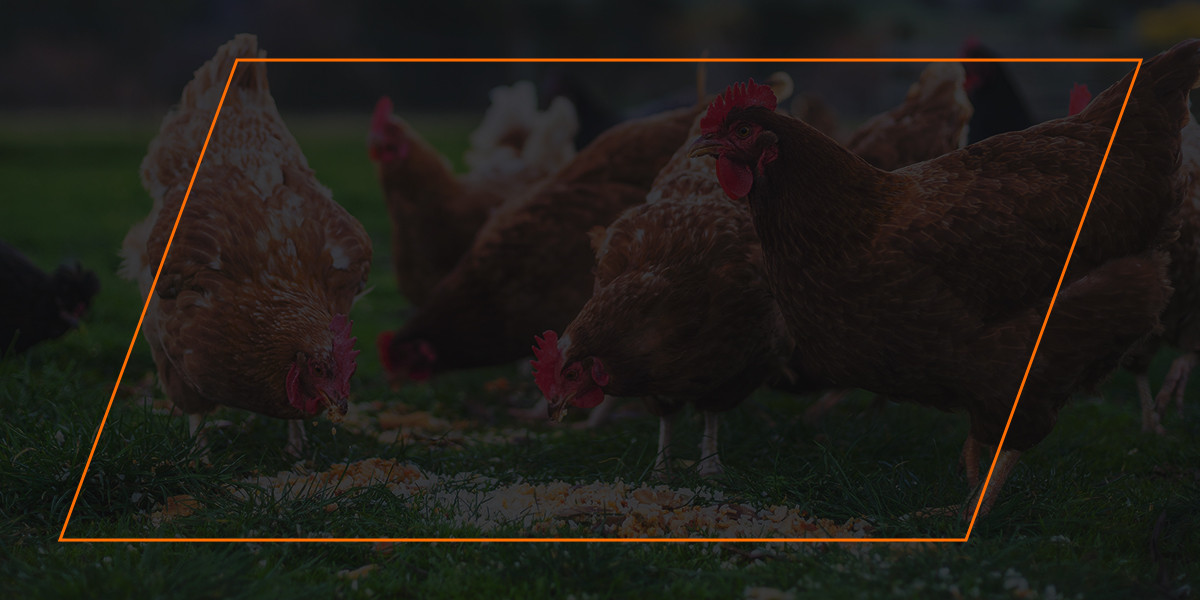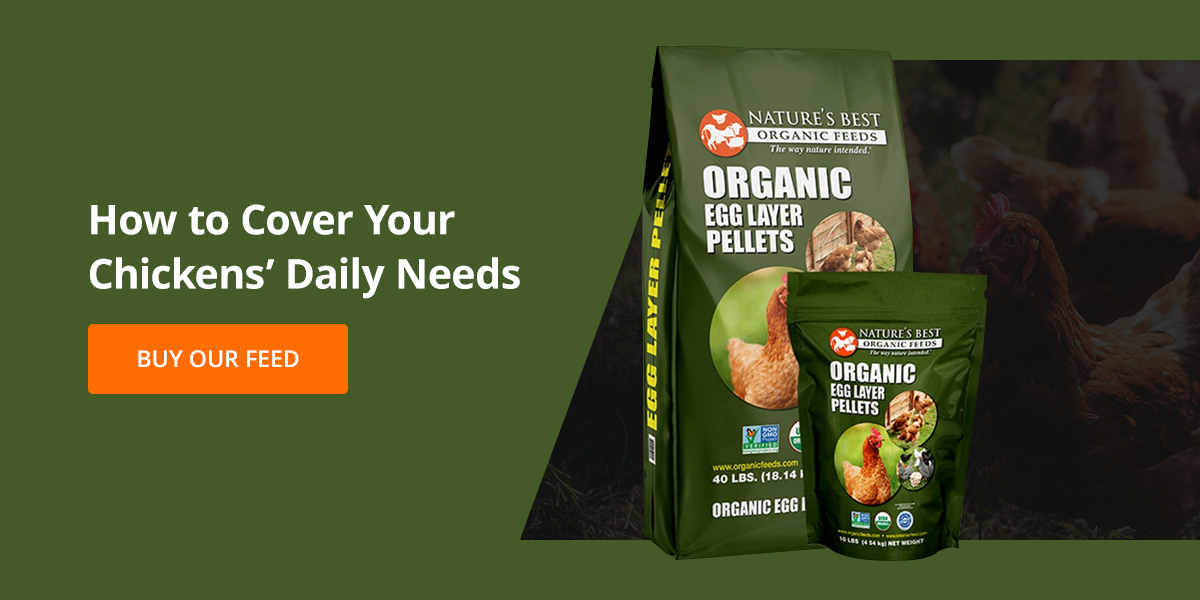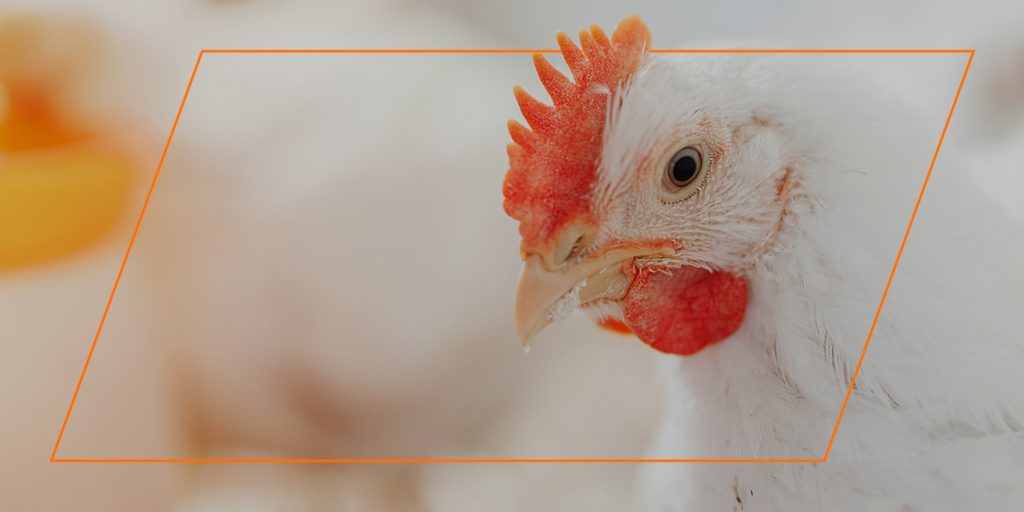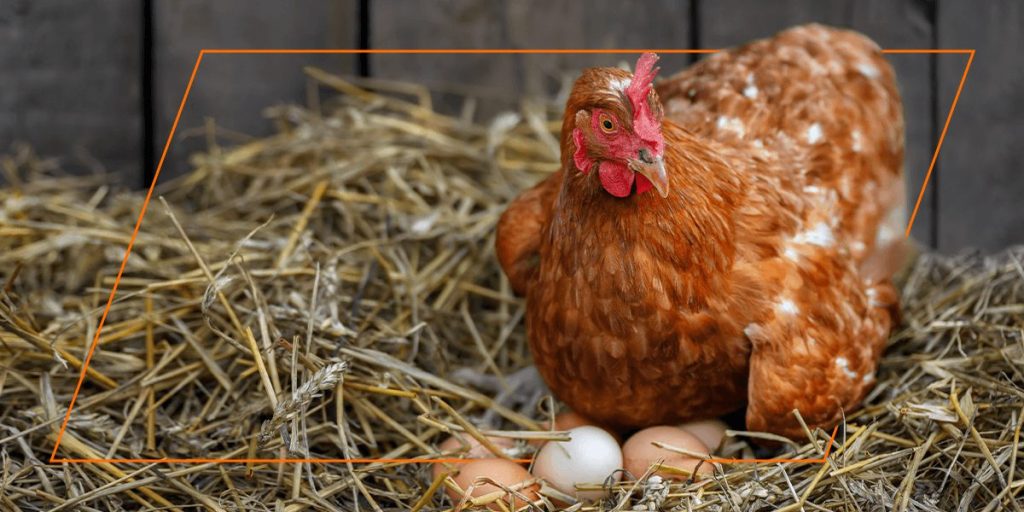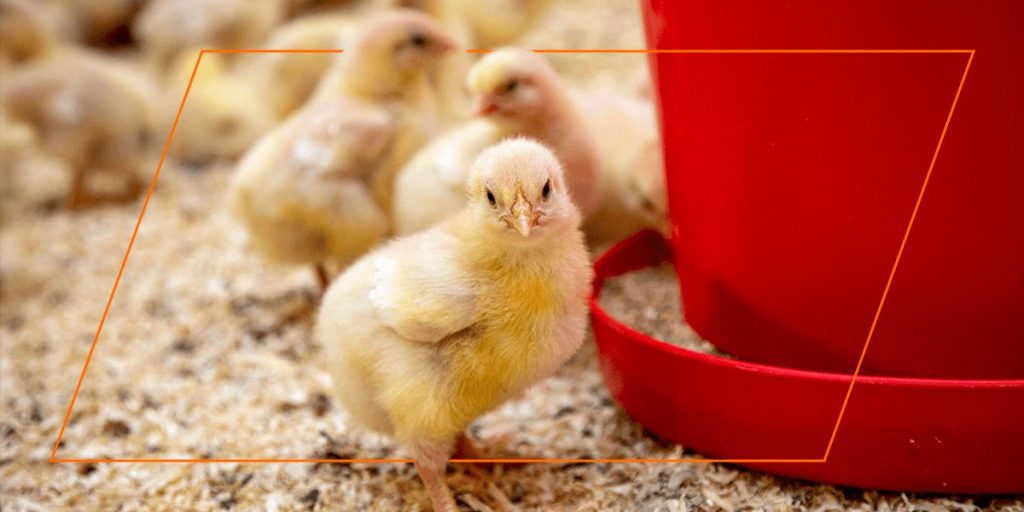Free-range chickens are happy to forage when the weather allows for it, but during winter or when free birds aren’t an option, your flock needs access to healthy, high-quality feed. Since feed costs are a substantial portion of the expenses when keeping chickens, it’s important to be sure you’re providing adequate nutrition without allowing feed to go to waste.
Buy Organic Chicken FeedBrowse Organic Chicken Feed
How Much to Feed Chickens Each Day
Since every breed and every flock is different, it will take some time and observation to figure out your ideal amount of daily chicken feed. However, there is a simple figure to provide you with a solid starting point: 1/4 of a pound per fully grown chicken per day. This means each chicken will eat approximately 1.5 pounds of feed in a week.
This amount will vary based on the age and size of your birds. The best way to determine your flock’s needs is by checking the feeders after they eat their fill. Just note whether any feed is left and adjust the amount up or down the next day. As a rule, it’s better to provide too much feed than too little, as the wasted product is preferable to undernourished chickens.
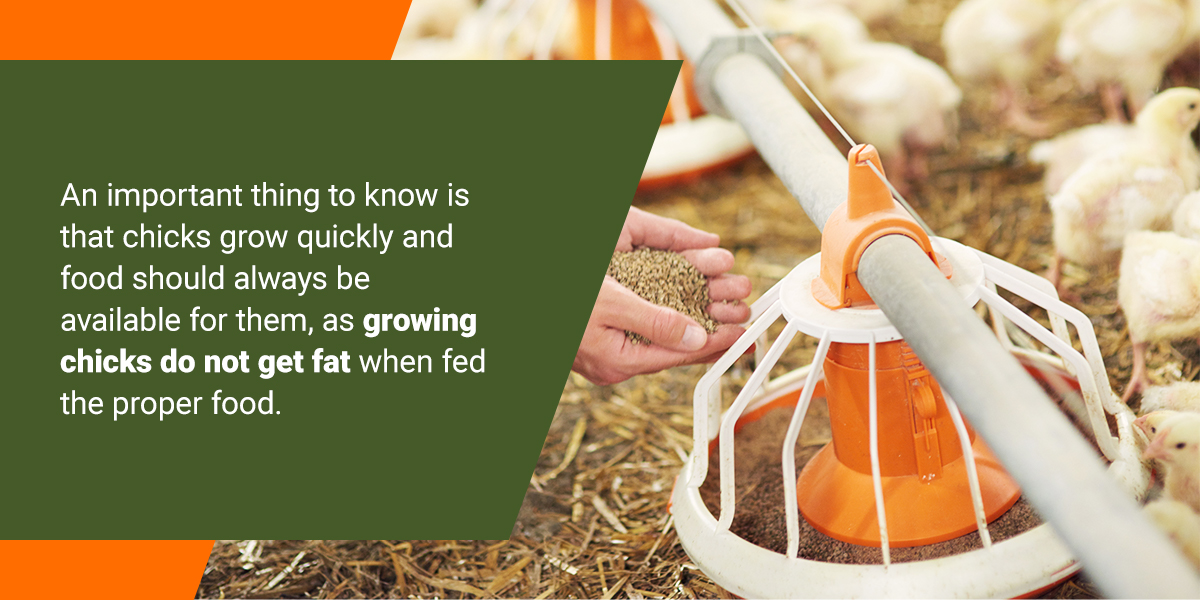
How Much Feed Do Baby Chicks Eat?
Knowing how much to feed chickens varies depending on a lot of factors, but when it comes to feeding chicks, the process is a little more intricate. Chicks need the right amount of food and nourishment to grow properly.
The answer to how much you should feed your young chickens varies as the chicks grow older. For the first eight weeks, your chicks will eat around one to two ounces of feed a day — that’s about three-quarters of a pound to one whole pound a week.
An important thing to know is that chicks grow quickly and food should always be available for them, as growing chicks do not get fat when fed the proper food. For the first 12 to 15 weeks of their life, you can feed your chicks our 20% Organic Chick Starter / Grower Crumbles.
How Often Should I Feed My Chickens?
Chickens need to go to roost with a full stomach to produce eggs. So how many times a day should you feed them?
There are a number of ways to feed your chickens. A good method is to feed your chickens two to four times a day. Chickens prefer to eat lots of small meals throughout the day instead of one large one. This feeding option is a method for those with backyard chickens or for those who have the time to feed their birds at regular intervals throughout the day.
Another method is giving your chickens access to an unlimited amount of food through feeders. This is best suited for chickens in confined spaces that don’t have access to yards to forage in. Chickens need access to a lot of nutrient-rich food to keep them healthy and give them everything they need to constantly lay eggs.
You can also give your chickens some nutritious, natural snacks now and then to supplement their feed and keep them entertained. Just be sure they don’t fill up on treats and neglect their layer feed!
Chickens Won’t Overeat
For the most part, chickens normally only eat what they have room for and won’t eat more than they need to.
Just because chickens won’t overeat doesn’t mean they can’t become obese. Treats like seeds, table scraps, and other non-feed-based foods should only constitute 10% of a chicken’s diet. Chickens tend to go for their treats first instead of eating the feed that contains all the nutrients they need. Too many treats will fatten up your chickens, so try to spoil them in other ways.
Effects of Foraging and Free Range Feeding
What should you feed your chickens when they can forage? Even free-range chickens need to be fed — foraging won’t always give them everything they need in a diet. Access to the right fruits and enough insects is helpful, but not enough.
Chickens still need the right supplements and nutrients in their food. Some of the most important things chickens need in their diet are:
- Protein: Protein is good for a chicken’s growth and muscle development. Laying eggs is a substantial nutritional drain, and the protein lost in this process needs to be made up for in this diet.
- Grains: Grains like corn, wheat, and oats provide chickens with vitamin B, vitamin E, phosphorus, and a protein boost.
- Calcium: Chickens that eat greens or formulated food get the vitamin A and calcium they need. If your hens are laying eggs with soft shells, it can be a sign of calcium deficiency.
- Grit: Insoluble grit is an important part of a chicken’s diet and refers to the small, hard materials chickens eat to help them digest food.
How to Cover Your Chickens’ Daily Needs
In addition to a well-rounded diet, chickens need a safe, dry coop, a constant supply of clean water, and grit to help them digest their food. It’s best to check these things frequently to keep your flock at their best — and they’ll appreciate the interaction, too! You can determine how much to feed your chickens per day and make them happier while you’re at it.
Since a good supply of nutritious feed grows healthy chickens and solid egg production, we recommend giving your pullets a good foundation with Chick Starter/Grower Crumbles from Nature’s Best Organic Feeds. With 18% protein and an ideal vitamin and mineral profile, this well-balanced feed will help your chickens grow into productive egg layers. Once you start collecting those first eggs, Nature’s Best also offers layer pellets and crumbles for mature birds.
All of Nature’s Best feeds are organic, scientifically tested, and Non-GMO Project Verified. Pick up a bag today and see how well your chickens can eat!

